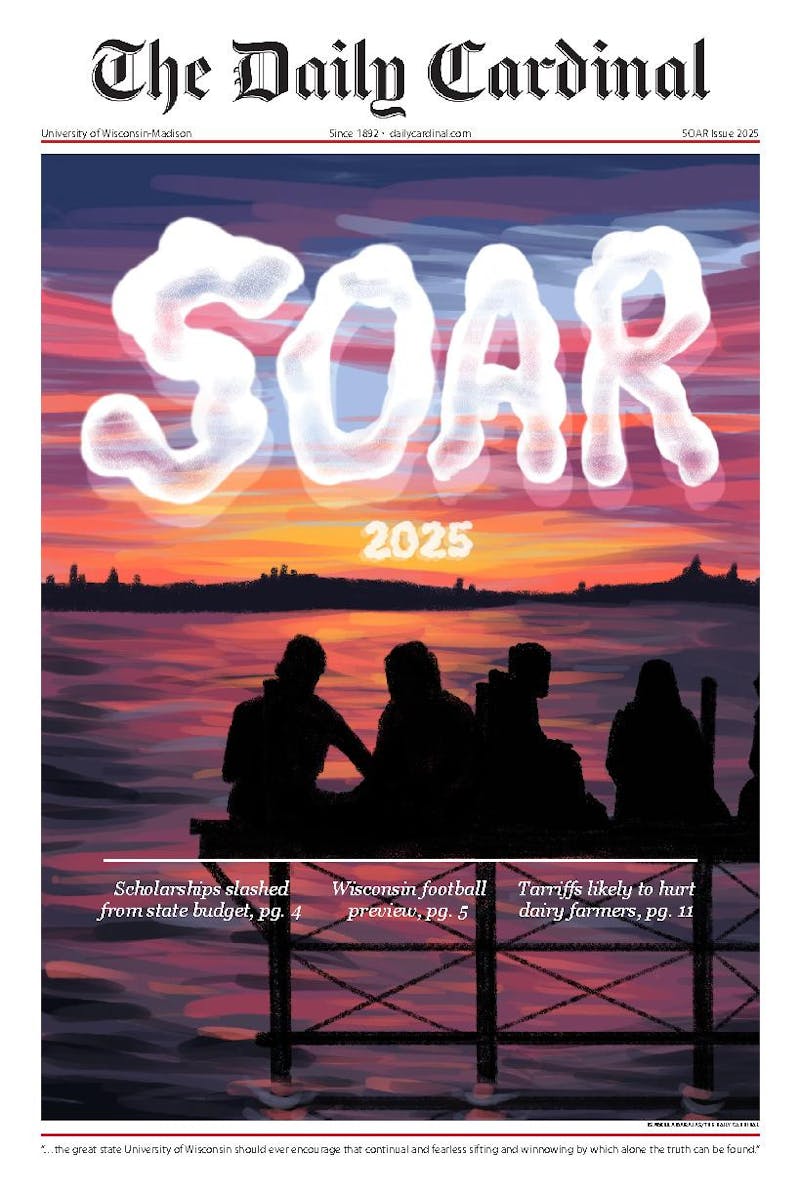The most popular majors at UW-Madison are, according to U.S. News & World Report, economics, biology, political science and psychology. Thousands of students each year graduate with degrees in these fields. Exactly zero students graduate with certificates in them.
Most universities offer students the option to major or minor in certain subjects. UW-Madison, which calls minors “certificates” instead, has two disparate lists of subjects that can be studied. Although there is some overlap between the lists, there are some huge differences. Although many fascinating options are offered as certificates, many of the most popular majors in the schools don’t have certificate options.
It’s understandable why there isn’t a perfect overlap between the major and certificate lists: Some certificates (I’m looking at you, pilates) aren’t broad enough to warrant being a full-fledged major. But there’s no reason why the opposite isn’t the case-—if you can major in something, why can’t you take fewer classes and get a certificate in it? Why can you major or get a certificate in mechanical engineering, but the same doesn’t hold true of material science and engineering? Who decides what’s worthy of a certificate? When was the last time the list of certificates was altered? The presence of certificates, and the obvious absences of vital subjects from the ranks of the certificate programs, leaves many questions unanswered.
Many schools like to tout that students can “create their own major” if they so choose. UW-Madison, I believe, offers this option—but the fact that I, as an opinion editor and campus tour guide, don’t know for sure, speaks volumes. If this is true, is it possible for certificates? Can we create our own certificates? Why aren’t subjects like history, political science and economics offered as certificates?
Students who are mildly interested in a field, but don’t have the time to major in it, are left out to dry. I’ve taken several political science courses during my time at UW-Madison, but don’t have the option to get a certificate in it and don’t have the time to add a third major. As a result, all these courses, which collectively help improve skills and knowledge in specific areas, are thrown into the “elective” pile and given the same value as any other class I could have taken. UW-Madison students are forced to accept having many classes go unnoticed at the end of the day because of a certificate system that is, at its best, confusing, and at its worst, fundamentally flawed.
This issue becomes more important when one considers certain phenomena taking place at colleges nationwide. As described in a Washington Post article titled “Meet the Parents Who Won’t Let Their Children Study Literature,” many students are majoring in subjects that they don’t have much interest in. A large number of them are coerced into becoming STEM majors, seen as more conducive to long-term financial success, even if they’d rather take more classes in the humanities.
These students could conceivably pursue said major, but also get a certificate in something that genuinely interests them. But if they take classes that society deems less valuable, and also have nothing to show for it, why would they? This further discourages students from taking courses in other fields—it’s either get a major, or get nothing.
Students who struggle with indecision—a massive portion of the student population—also are placed under more pressure by this system. Those who decide to switch majors, even after taking a significant amount of credits in a different field, are out of luck. If they were able to secure a certificate in their original major, they would at least receive some return from their investment. The inability to do so for many majors, however, can force students to stick with majors they don’t love, because they don’t want to completely alter their academic path with nothing to show for it.
Granted, it would take some effort to design new certificate programs. But it wouldn’t be too difficult to examine the majors currently offered, pare them down to have less strict requirements and hand students a certificate for their efforts. This would give students the credit they deserve for focusing their efforts on certain areas, even if they didn’t completely fulfill major requirements.
The university likes to talk about certificates as a way of reinforcing the uniqueness of the school—having certificates, rather than minors, makes us different. But what practical reason is there that some majors inexplicably don’t have certificate counterparts? This practice only discourages students from taking classes in fields that they’re interested in and sows confusion.
There needs to be more clarity as to why certain subjects are (or, more importantly, are not) included in the list of certificates. Even if students don’t have a say in what is chosen, they should at least understand why certain subjects are offered as certificate programs and some inexplicably aren’t. Until then, the university continues to waste both our efforts and our time.
Sebastian is a sophomore majoring in history and environmental studies. What are your thoughts on the certificate program at UW-Madison? Please send all comments, questions and concerns to opinion@dailycardinal.com.






